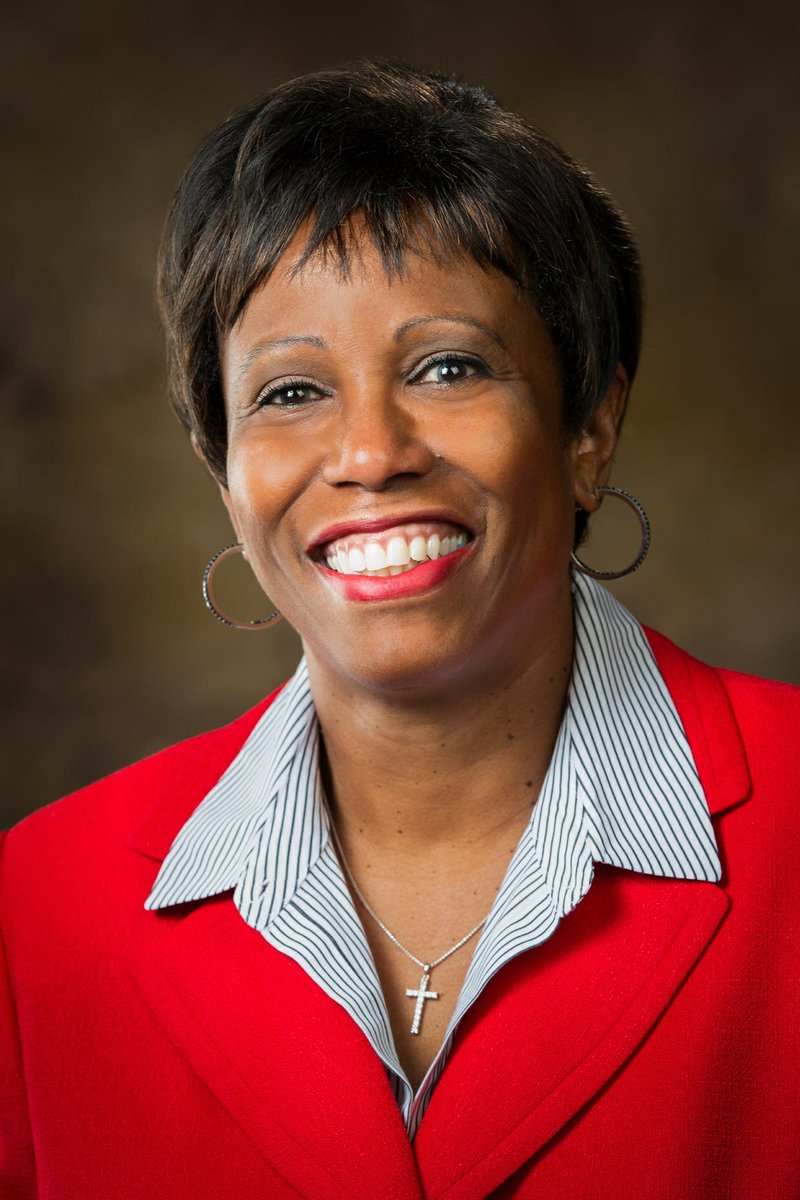Cynthia Nance may hold some feet to the fire at this year's 21st annual Recommitment Banquet hosted by the Northwest Arkansas Dr. Martin Luther King Jr. Council.
Nance -- like so many other people -- has become very aware lately that the idea of "otherness" must be overcome to make America safe, kind and whole again. And she wonders how that can happen if people live in their own bubbles where everyone is like them.
FAQ
Recommitment Banquet
WHEN — 7 p.m. Jan. 16
WHERE — Fayetteville Town Center
COST — $20-$30
INFO — nwamlk.org
ALSO — There will be a freedom march at 11:15 a.m. Jan. 16 beginning at the corner of MLK Boulevard and Razorback Road and a noon vigil at the Walton Arts Center parking lot.
FYI
Fort Smith
MLK Events
Wednesday — Ministerial Alliance Prayer Service, 7 p.m., St. James Missionary Baptist Church, 4916 High St. 285-9637.
Jan. 14 — Awards and recognition banquet, 7 p.m., Reynolds Room of the Smith-Pendergraft Campus Center at 800 N. 49th St. $30. 739-7904.
Jan. 15 — Ecumenical Service, 7 p.m., First Baptist Church, 3110 Kelley Highway. 739-7904.
Jan. 16 — MLK Breakfast, 7:30 a.m., Reynolds Room of the Smith-Pendergraft Campus Center. Free. Following the breakfast will be “The Trumpet: A Fort Smith Community Forum.” 788-7768 or [email protected].
"I want to ask the folks at the banquet who's sat at their dining room table with people who are different, because that makes it personal. We do that in other contexts all the time," says Nance, the banquet's keynote speaker. "It seems to me that right now we really could use a reminder that Dr. King stood for dignity and equality and justice for everyone. We forget how broad his mission was."
Nance is likely to encourage her audience that King "would want us to reach out to anyone feeling 'other' or different or disenfranchised -- Muslims, immigrants, people who are trans[gender]. Activists need to have a broad tent and stand with others."
As former dean of the University of Arkansas School of Law, Nance broke glass ceilings of both race and gender. She was, she says, the school's first female dean and first African American dean, and she felt the responsibility acutely.
"Sometimes you're called to do something you didn't necessarily want to do, but it's for a broader purpose," she says. "It was important to be a woman dean of law in the South, in the state with Central High as a backdrop. It was important to do it and be an excellent woman and excellent person of color, so next time around it wouldn't be a thing. It was important to our students."
It was, she admits, not something she expected to do.
"As someone who grew up on the South Side [of Chicago], went to public school and took so long to get it together, there was no way anyone would ever tell me this is what you'd be or do," she says with a laugh. "But that's a message too, to students and parents. 'Don't give up. You never know.'"
Nance credits her success to her parents -- especially her mother -- who refused to be culturally stereotyped. Her father was a truck driver, her mother a legal secretary, but Nance grew up playing the violin and crossing the color line to the north side of the city to ice skate and attend symphony concerts.
"My mother made it very clear that the world that we lived in was not the whole world, and we could be whoever we wanted to be," she says. "I didn't really realize that until I looked back."
Nance says it took her 10 years to finish her undergraduate degree -- "because I was a little bit of a goofball and didn't really have a good plan" -- and chose law school "because I wanted to change things I thought were not right. I wanted to have a voice." Now, she says, her "street cred" allows her to have a voice for people who otherwise might not. In the last couple of years, she has started to volunteer her time as legal counsel for the poor, and it's opened her eyes in some ways she expected and others she didn't.
Nance says as a black woman, her "otherness" is always on display, and particularly in a professional setting, "I'm always aware of it, thinking of the need to be excellent and portray excellence and professionalism. For me, if you're going to open doors for people coming up, you don't ever want to create a situation where their opportunities are limited by something you said or did. But I also feel the need to speak up. I can be professional. I can be courteous. But I need to call the crap out on the carpet."
It might make for an interesting keynote address.
NAN What's Up on 01/06/2017

